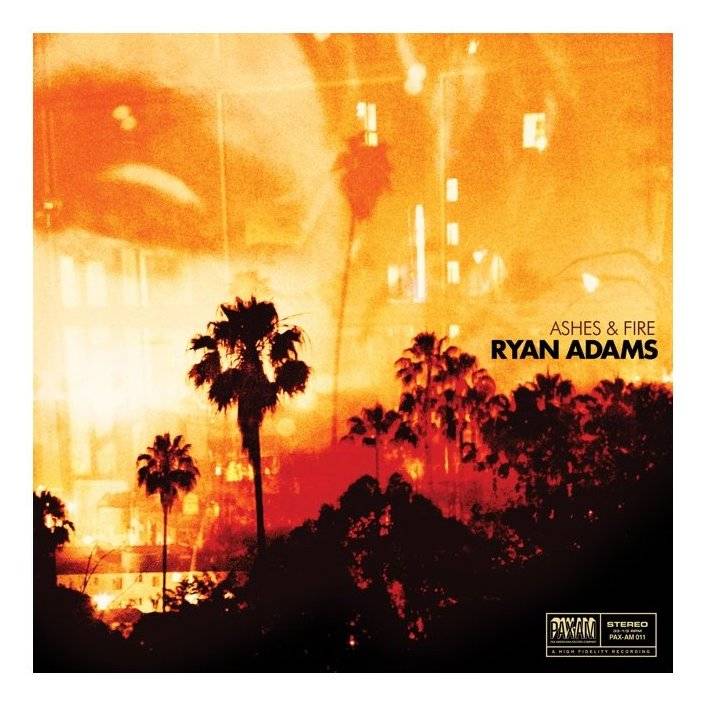 Wikipedia tells us he was born David Ryan Adams in North Carolina in 1974. In his twenties he started the band Whiskeytown, but found larger success as a solo artist. He used to have a drug problem and he suffered from an inner ear issue that caused him to retire from music for two years. He is married to Mandy Moore and has written a couple of books.
Wikipedia tells us he was born David Ryan Adams in North Carolina in 1974. In his twenties he started the band Whiskeytown, but found larger success as a solo artist. He used to have a drug problem and he suffered from an inner ear issue that caused him to retire from music for two years. He is married to Mandy Moore and has written a couple of books.
These objective facts tell part of the Ryan Adams story, but anyone who is a fan of his work would certainly feel like they know more than that about the singer/songwriter.
This closeness derives from the personal nature of his writing, which has a kind of immediacy that endears listeners to what he is saying and the slight drawl it is delivered with. Through that mild twang we’ve heard of incredible heartbreak (Two silvers rings, one’s on my finger and the other one’s gone / Went underground with you – “Dear John” from Jacksonville City Nights), of desire (Well, everybody wants to go forever / I just wanna burn up hard and bright / I just wanna be your firecracker / And maybe be your baby tonight – “Firecracker” from Gold) and of self-loathing (Screw all my friends behind my back / With a smile on your face / And then do it again / I wish you would – “Come Pick Me Up” from Heartbreaker).
Through these lyrics fans have grown to know (or, at least think they know) Adams on a more intimate level. They know his trials and tribulations, the cities he loves and the places he calls home. But how much does anyone really know about him?
If we really can learn about Adams from his music, then what are we to take from Orion, his semi-serious attempt at a metal concept album? He didn’t really fight an inter-galactic war, did he? In the same vein, are we to expect impending zombie apocalypse from one of Adams’ former lovers as “Magick” would have us believe?
So, does anyone really know who Ryan Adams is? As his voice varied from song to song on his early work, his personality shifts from album to album. He is Rock ‘n’ Roll and he is Heartbreaker. He is everything at once and he is not going to be pinned down.
Where does that leave us for his 13th studio album, Ashes and Fire? Somewhere closer to Heartbreaker, but certainly not with the young man who wrote that album.
Ashes and Fire is the result of Adams having to relearn music after his hearing loss due to Ménières disease. It is a soft and elegant album that is the most authentically country work he has done since 2005’s Jacksonville City Nights.
Though the album feels like a return to the elements that made Heartbreaker and his early stuff so widely appealing (unlike Easy Tiger and Cardinology, which are beloved by mostly just RA devotees), the album sprang forth organically — not from record label pressure. Since “retiring” Adams started his own label to release odds and ends (see: Orion, random 7-inch B-sides), under the Pax-Am label the singer/songwriter was able to come up with an album that catches him at his finest.
Of course, it helps to have the father of Ethan Johns (producer of Heartbreaker and Gold), Glyn Johns, as producer. The elder Johns helped create an album that feels cozy and familiar, but it is Adams’ songwriting that make Ashes and Fire so endearing.
The first single, “Lucky Now,” has the same kind of self-deprecating lyrics as his solo debut. He sings “Are we really who we used to be?” as if asking the listener to allow him to no longer be the person he was in his earlier recordings.
Though the album is familiar, Ashes and Fire is a new direction for Adams. He uses the same voice throughout; there is no whispery crooning (e.g. “Sylvia Plath”) or wild yell (e.g. “Love is Hell”), rather Adams voice has the soft and deep tone of songs like “Oh My Sweet Carolina” and “Magnolia Mountain.”
His words are set upon a quieter base than recent albums have provided. Often instrumentation is sparse, barely including more than just an acoustic guitar. The album is beautiful for its simplicity, more intimate, and when the piano and strings of “Chains of Love” or the wah-wahhed guitar of “Invisible Riverside” kick in it’s more surprising and rewarding.
There are a few clues as to who Adams’ is on this album. He is a protector (“I Love You but I Don’t Know What to Say”) and he is in for the long run (“Come Home”), but lyrically he is presenting another side of himself, again.
Ashes and Fire doesn’t bring us any closer to knowing who he is than any of his other albums did, but at the end of the day maybe it is best not to try and know who Ryan Adams is. Instead arrange his albums not alphabetically, but by personality, and enjoy them accordingly.








